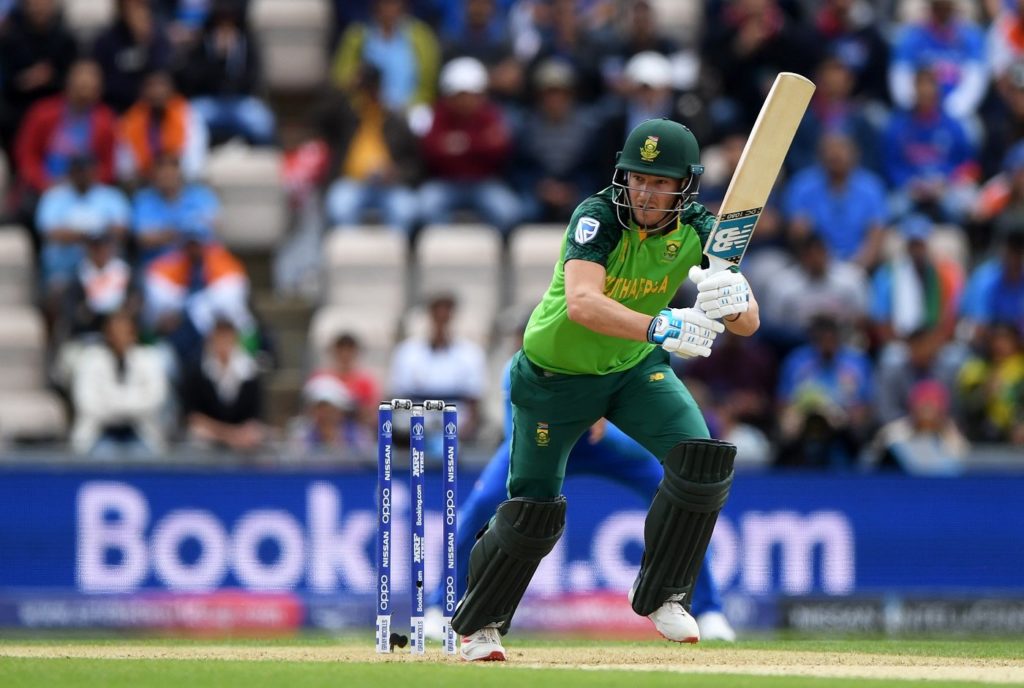With six matches to go before the T20 World Cup starts in the UAE, the Proteas are still searching for pieces to the event puzzle and having to confront the tough selection dilemmas, writes RYAN VREDE.
Proteas head coach Mark Boucher was bullish at the post-T20I series media conference after beating the West Indies 3-2. “A lot of people wrote us off before we even started playing this series,” he said. Yes, and with good reason.
The Proteas had won just four of 16 T20I matches under Boucher’s watch preceeding the Windies series. There was a pattern of failure that didn’t look like ending, from which the criticism stemmed. Credit to Boucher and the coaching staff for turning it around in the series despite chronic mediocrity in the buildup to it.
However, while beating the West Indies on their turf is a notable achievement, it is not indicative of the Proteas having turned the corner. This is a side ranked four places below them, and certainly not the potent one that became T20 world champions. The three-match T20I series against India in October will give us the clearest idea of just where this Proteas squad is going into the World Cup.
What is certain is that the Windies exposed some glaring skills deficiencies that need urgent attention.
It’s hard to assess the value of a three-T20I series against the 12th-ranked Ireland in the context of what the Proteas need to remedy with just six matches to play before the World Cup.
South Africa’s talent alone should carry them to a comfortable victory. It is unlikely that they will face any telling examinations of the problems that plagued them throughout the Windies series, most notably their impotency against bowlers with a broad skills base, operating post-PowerPlay on slow decks (the likes of which will be commonplace at the World Cup). Add to that their own inconsistency in exhibiting similar skills with the ball in that period and those conditions.
It is also unlikely that their temperament, traditionally the most glaring Proteas deficiency at big tournaments, will be tested to any significant extent.
There may be opportunities for players who haven’t had them, Janneman Malan, Bjorn Fortuin, Wiaan Mulder, Lizaad Williams and Kyle Verreynne among those.
However, the Proteas selectors are likely to be torn between this approach and establishing continuity in the buildup to the showpiece tournament. It appears the latter is the route they want to take, given that the team for the West Indies series stayed largely unchanged.
This is completely understandable, but it demands that the coaching staff and players invest in remedying shortcomings that plagued them in the Windies series.
This needs to start with addressing their middle-order struggles, which accounted for their inability to surpass 170 in the series, despite often having a solid foundation to do so. How they do this in the narrow window available before the World Cup remains to be seen.
David Miller’s form is the most pressing concern in this context. He averaged 13.00 across five innings at a strike rate of 108.33 in the series. At his best, Miller is a match-defining force. However, he drifts in and out of this state too regularly, making him a player most view with more hope than reasonable degrees of certainty. A lack of competition/opportunities for competition doesn’t help. Miller has the investment of his coaches and selectors, and needs a return on that investment at the World Cup.
The middle-order situation is made more troubling by the unavailability of Dwaine Pretorius, who has been the Proteas’ most consistent all-rounder in recent years. After missing the tour of the West Indies with Covid-19, Pretorius also hasn’t been included for the upcoming tour of Ireland. This means he has three T20Is against India in October to prepare for the World Cup, which is not ideal personally or for the collective.
There’s also the issue of whether they offer Andile Phehlukwayo any further opportunities to advance his case for a starting spot at the World Cup. This seems unlikely, given that he wasn’t picked for any of the matches in the West Indies.
Whether the Proteas make Pretorius one of two or three all-rounders, as they did in the deciding T20I, is something else they need to figure out in the matches that remain. Wiaan Mulder played in the spot most likely reserved for Pretorius in the series decider, and is likely to get further opportunities in Ireland. George Linde was good with the ball in the West Indies, but averaged just 2.00 with the willow, which is an obvious betrayal of his immense gifts. The similarly gifted Bjorn Fortuin got one crack in the decider, didn’t bat and got clobbered for 11 in the one over he bowled. This should not detract from his all-round value and what he offers the selectors in tactical versatility.
On the bowling front, Kagiso Rabada, Anrich Nortje, Tabraiz Shamsi and Linde form the core quartet. There is one spot remaining, created by Lungi Ngidi failing to take his opportunities. The Ireland series offers a chance at redemption for a bowler who learns quickly, evidenced by his excellence in the Test series. If the selectors opt to go in a different direction, one of Mulder or Fortuin could be the primary beneficiaries.
The Irish batsmen pose a diluted threat when compared to the Windies, who were able to consistently exploit the Proteas’ skills deficiencies on the slow tracks, but this will undoubtedly be an area marked for much improvement.







